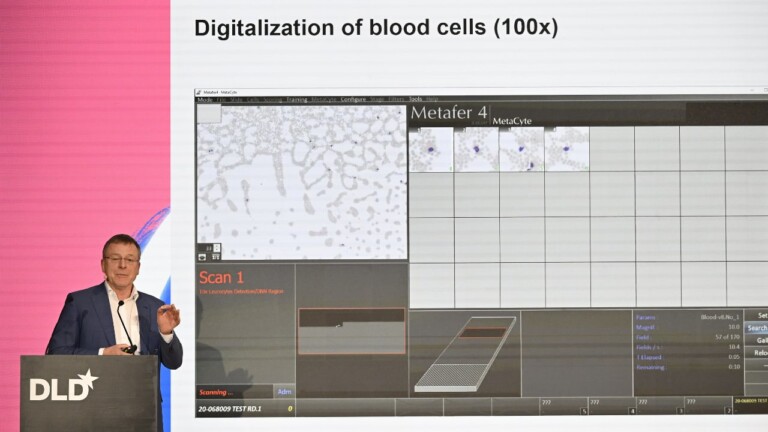In the cutting-edge field of organoid computing, living neurons are used as processors. Dr. Fred Jordan, CEO of FinalSpark, and journalist Andrian Kreye (Süddeutsche Zeitung) explore the possibilities of this radically new way of computing.
Kreye sets the stage by highlighting the energy inefficiency of current AI systems. “ChatGPT uses the energy of a small town”, he notes, while the human brain operates on “the energy of a 30-watt light bulb.” This dramatic difference illustrates the need for more efficient computing solutions.
Jordan explains that an organoid “is a collection of living neurons”, about 10,000 cells each, which can be used as processors. The neurons are kept alive in a controlled environment, similar to an incubator, where they are fed nutrients and maintained at 37°C. “They are 100% alive”, Jordan emphasizes, showcasing real-time neuron activity on the company’s website.
The neurons of organoids communicate via electrodes, sending and receiving electrical signals, and are trained using dopamine rewards, a method inspired by how artificial neural networks are trained in machine learning.
Watch the video to follow this engaging conversation about the future of computing, its ethical implications, technical challenges, and potential applications.




